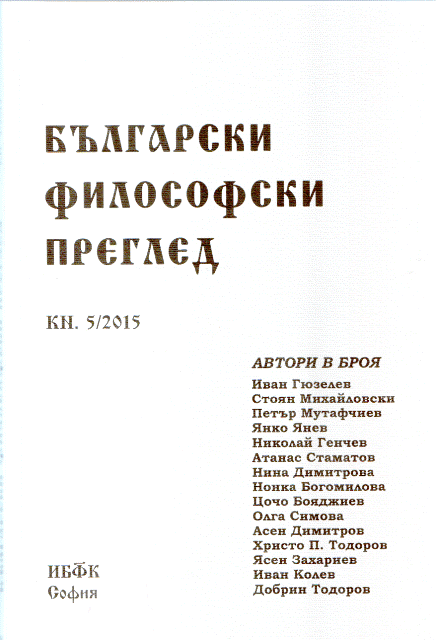
We kindly inform you that, as long as the subject affiliation of our 300.000+ articles is in progress, you might get unsufficient or no results on your third level or second level search. In this case, please broaden your search criteria.


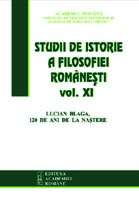
This essay aims to reconsider L.Blaga’s dispute over phenomenology. Blaga’s debate is analyzed in line with the conflictual perspective in which the phenomenological viewpoint and metaphysical constructs are incompatible. Blaga’s thinking could be associated with the metaphysical condition of ‘philosophical system’, while for phenomenology it is ‘experience’ that prevails. Following this distinction, the Romanian philosopher’s arguments against phenomenology are analysed in the light of their motivations depicted in I.Brucăr’s ‘phenomenological’ interpretation of Blaga’s philosophical works.
More...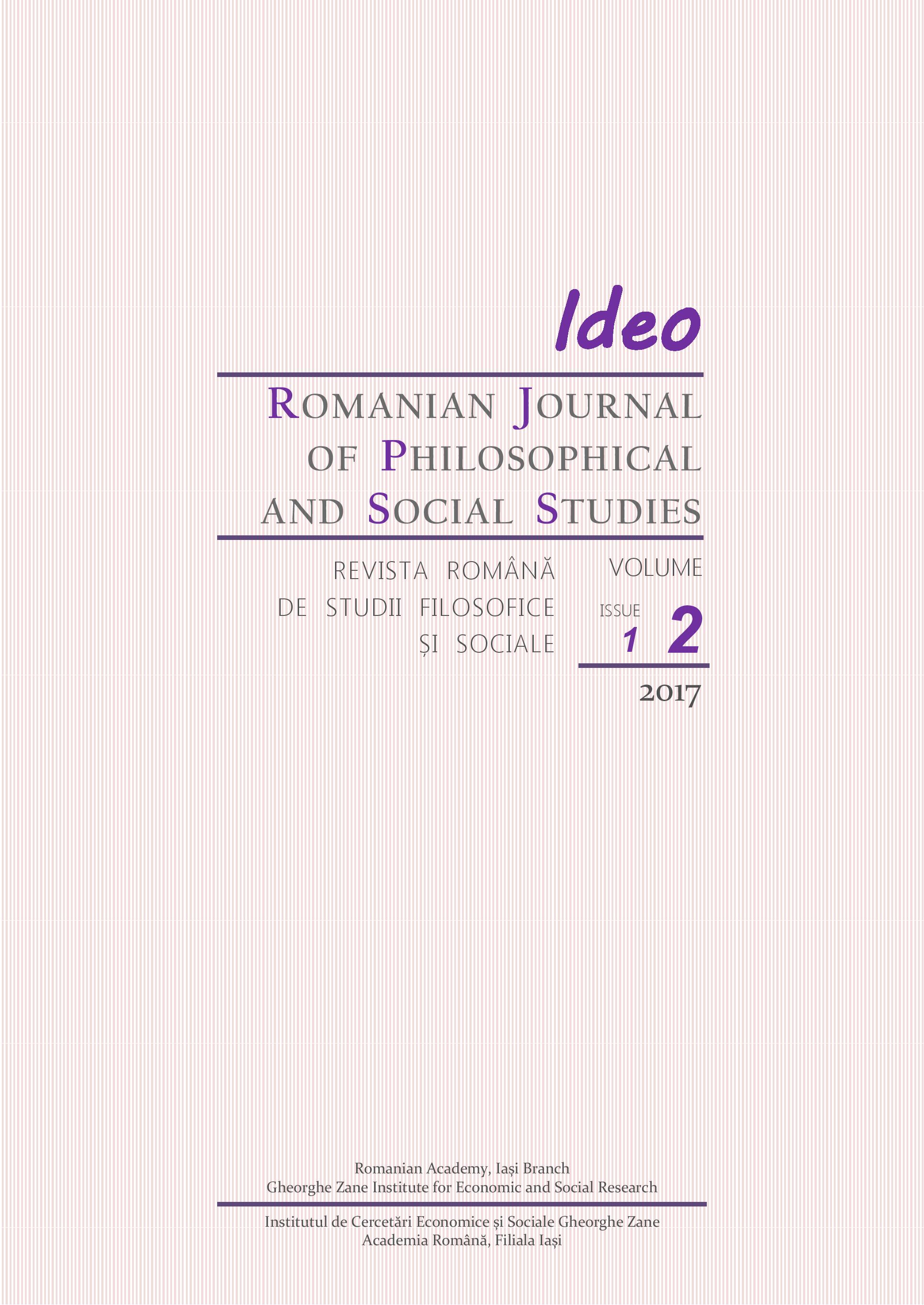
This article aims to explore the so-called ‘Foucauldian effect’ on different contemporary models of academic governance. In these models, educational institutions are defined as parts of a large apparatus of social observation and they are integrated in blocs of power that act within a disciplinary society. My thesis is that academic environments function as normalizing institutions in which the educational management is regarded as the result of the discursive production of power, inspired by “the art of (self) government”, following Foucault’s argument. In the first three sections of my article, I will investigate the relationship between governance and governmentality in educational terms. My analysis focuses on the role of social constraints in determining the ideological construction of these two concepts, in the light of Foucault’s and Durkheim’s critiques. In the last four sections, I will focus on the Foucauldian critical on three models of encapsulating the educational management at micro-institutional level through bureaucracy, Fordian, and Taylorian mechanisms of economic and social discipline. I will argue that each model depends on the cultural capital they involve, a premise that might be applied in the contemporary attempts of reforming educational policies.
More...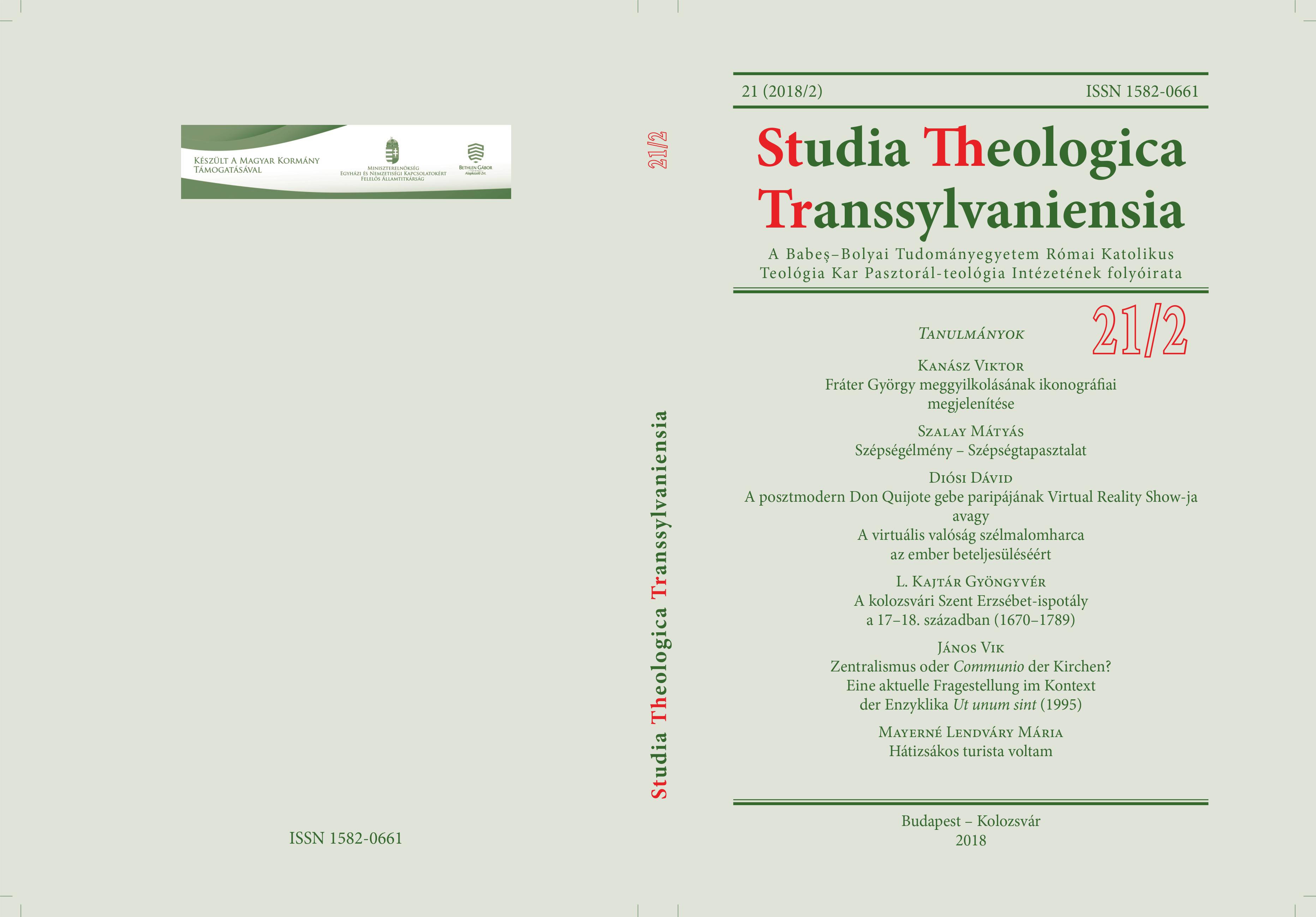
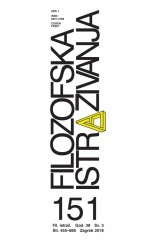
This paper addresses the possibility of deconstruction as a method. On many different occasions, Derrida rejected the possibility of deconstruction as a new method of reading and interpreting because, every time, it adapts to the discourse to which it relates, but he also attempted not to include in it anything that was not already marked or announced by its existing organization. Nevertheless, simultaneously, he acknowledges the fact that some elements, rules, and procedures may, and even have to be, repeated and transferred from one text to another, in the extent to which they repeat and reproduce typically logocentric relations, such as those between inside and outside, or between centre and margin. This duplicity is then examined as a difference between the immanent and transcendent criticism. According to Derrida, the point is that these two approaches intertwine and interplay in such a way that it is being done in a space neither wholly inside nor completely outside the sense units that they affect – on the margin. In addition, all of this, eventually, is displayed as a draft for a general strategy of deconstruction.
More...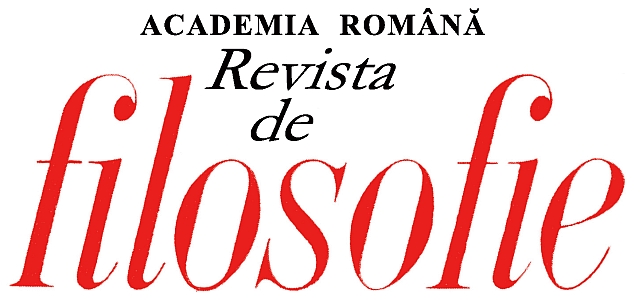
Theaim of our paper is to offer a historical sketch of the beginnings of strict finitism,especially from the point of view of its many philosophical aspects. A major hypothesisof our approach is that this presentation could be better done if we have in mind as anecessary background the intuitionistic, and broadly speaking constructivist mathematicalissues, also in a historical dimension. As a result, apart from some brief generalremarks, we will give here an insight mainly into the texts of some pioneering works inthis field of Paul Bernays, Émile Borel and David van Dantzig and into some importantconnections with Brouwer’s intuitionism.
More...
Svako pitanje je neko traženje. Mislilac nas pitanjima upućuje na neki put, jer sama pitanja već su utiranje nekog puta.
More...
Potrebuje li odnos slobode i tehnike uopće još neko razjašnjenje? Nije li već odavno ustanovljeno i ne ustanovljuje li se uvijek iznova, da rastuća vladavina tehnike progresivno ugrožava ljudsku slobodu?
More...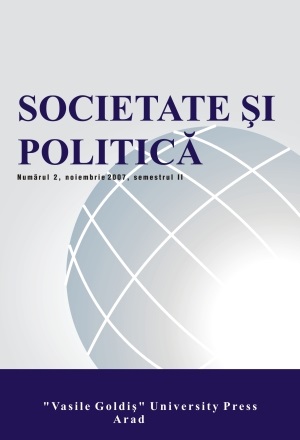
A significant thread in Boris Hessen‟s iconic essay, The Social and Economic Roots of Newton’s Principia (1931), is his critique of Newton‟s involving God in his physics. Contra Newton, Hessen believes that nature does not need God in order to function properly. Hessen gives two, quite distinct, „internal‟ explanations of Newton‟s failure to see this. The first explanation is that Newton‟s failure is caused by his believing that motion is a mode instead of an attribute or essence of matter. The second explanation is that Newton‟s failure is owed to his considering mechanical motion as the sole form of the motion of matter: Newton, in Hessen‟s view, did not realize that matter has many forms of motion which constantly transform into one another while conserving energy. In the present paper, I defend the thesis that none of these explanations can account for Newton‟s failure. Hessen‟s first explanation is problematic because even if Newton believed that motion is an attribute or essence of matter, he would still be obliged to involve God in physics. His second explanation fails too because he does not show exactly how the multiplicity and inter-transformation of forms of motion can account for nature‟s organizational structure.
More...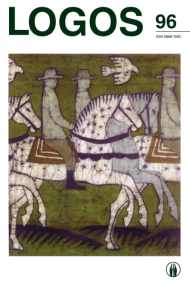
The article discusses the similarities and differences of Western and East Asian daily aesthetics and the possibilities for dialogue. The first part surveys and compares the treatment of daily aesthetics by Western and East Asian scholars. Particular attention is given to their definitions of concepts and subject matter. The second part concentrates on the concept of boredom. This focus is especially helpful to reveal the differences and similarities between Western and Chinese-Japanese daily aesthetics. The analysis of boredom is based on a popular book by Lars Svendsen, A philosophy of boredom, and on the description of daily aesthetic experiences in Chinese and Japanese literature.
More...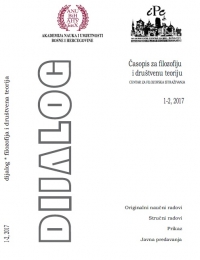
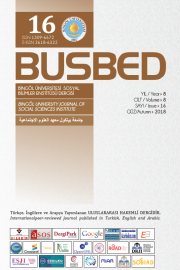
In this work, concepts of “episteme” and “discontinuity”, which have an important place in the terminology of Foucault, were studied in the framework of Foucault’s philosophy. With the consideration of the concept of episteme in this direction; Foucault’s insights into why archaeological settlements of historical periods have different knowledge bases in each era will provide insight. In addition to this, from the concept of discontinuity, the views and reasons why Foucault sees the necessity of separating the history, such as the Renaissance Period, the Classical Period and the Modern Period, will be examined. As seen in this context, the concept of episteme and discontinuity in terms of the idea that Foucault puts forth is a structure which needs to be considered together in terms of understanding rather than concepts which can be examined and understood by separating them from each other.
More...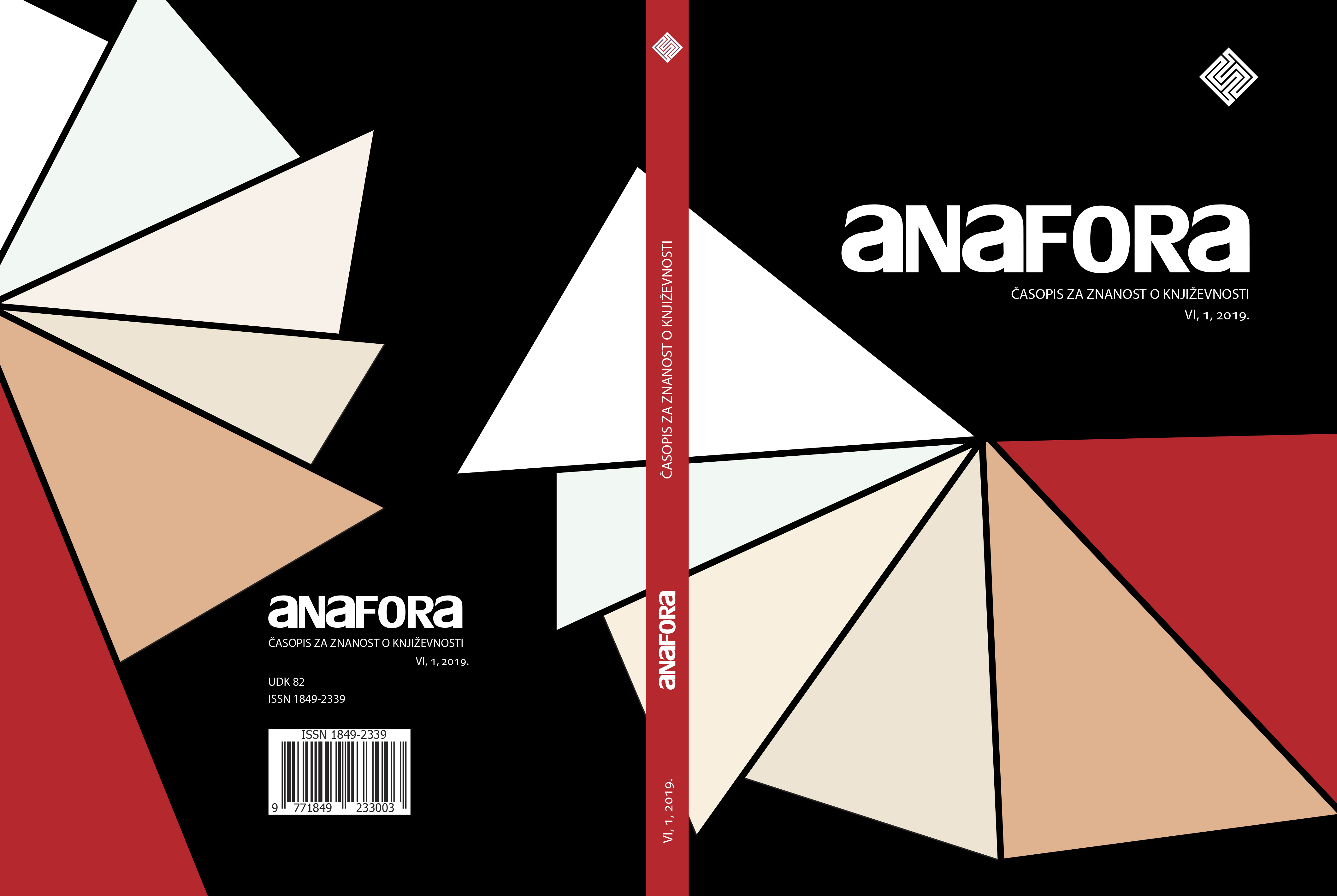
Review of: Boško Pešić, Portreti filozofije: Heidegger, Jaspers, Arendt. Naklada Breza, Zagreb, 2019., 151 str.
More...
IPlace is the scene of cinematic action. The place has historical, social and cultural ties. Without these connections, it is possible to say that the cinematic representation of space is incompleted. The subject of our study is non-placesl and / or heterotopias. Foucault claims that heterotopia takes place in real space. Foucault describes the heterotopia as other place. Reconcile cinema with the other place is depends on the field of thinking offered by the film to the audience. In this study, Ömer Kavur cinema will be examined in terms of heterotopia. Discussion of these two points will be provided: - The more complex our real space, the more perfect the heterotopias are. - Heterotopias produce an illusion space and thus present the remaining real space as an illusion
More...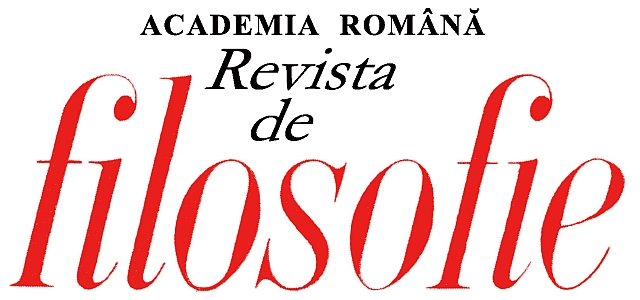
In contemporary philosophy,there are orientations so opposing or hostile to one another, such that their positionsseem irreconcilable. We simply have the feeling that some philosophers cannot bejoined. That would be the case of Cioran and Carnap. A philosopher belonging to theessayistical-literary philosophy and a philosopher belonging to the logical-positivistphilosophy. Incredibly, perhaps, at first glance, but yes: there is a common thread in avery important matter for the philosophies of the two thinkers, namely their conceptionof traditional philosophy.
More...
In theauthor’s opinion, Heidegger approached Jewish mysticism more than the exegeteshave accepted. Through Kabbala denudata of Knorr von Rosenroth, which inspiredthe Leibniz’s theodicy and his principle of “abyssal ground”, seen by Heidegger as the“revelation of nothingness in the heart of being”1, a mystical point of view seems tohave influenced Heidegger with an essential concept: ain soph. Ttranslated by theZohar as “the non-existent” or “the great nothingness”, this abiguous term can give usby its connotative loading a more accurate perspective of what Heidegger wanted toexpress through das Nichts, and helping us to understand why being can be seen as asublime transcendence of nothingness. This parallel between Heidegger and Jewishesotericism make more comprehensive the Heidegger’s ontocrony, as a metaphoricrelocation of transcendence in time.
More...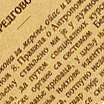
This work presents summarized analyses of Foucault’s understanding of space, noted by West-Pavlov and Zieleniec, and provides further elaboration. The subject of analysis is Foucault’s identification of the role of space in generation of scientific knowledge and articulation and implementation of power/knowledge, as well as his concept of heterotopia. This work calls on West-Pavlov and Zieleniec’s fundamental positions and provides overview of Foucault’s positions regarding space and society, and contributes with further analysis and elaboration.
More...
Ako bi s dvije ključne riječi trebalo odgovoriti na pitanje što je preostalo od Husserlove fenomenologije i njegovih istraživanja intencionalne svijesti, vjerojatno bi odgovor glasio: tijelo i Drugi.
More...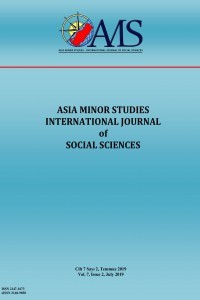
Michel Foucault (1926-1984), one of the most important and original figures of the 20th century, worked on the issues that are almost exclusively mentioned with his name in contemporary sociology. These include medicine, madness, discipline, punishment and sexuality. In almost all his writings, Foucault placed variables such as power, discourse, knowledge, language, subject and body in an unchangeable center. When examined as a whole, one of the main components of Foucault's sociology is to disclose and criticize power that intends to create a subject through bodies. In other words, one of the main themes of Foucault's extensive and detailed writing is the interconnection of the triad power, body and subject. Therefore, this short article has the problem of summarizing Foucault from such a perspective.
More...